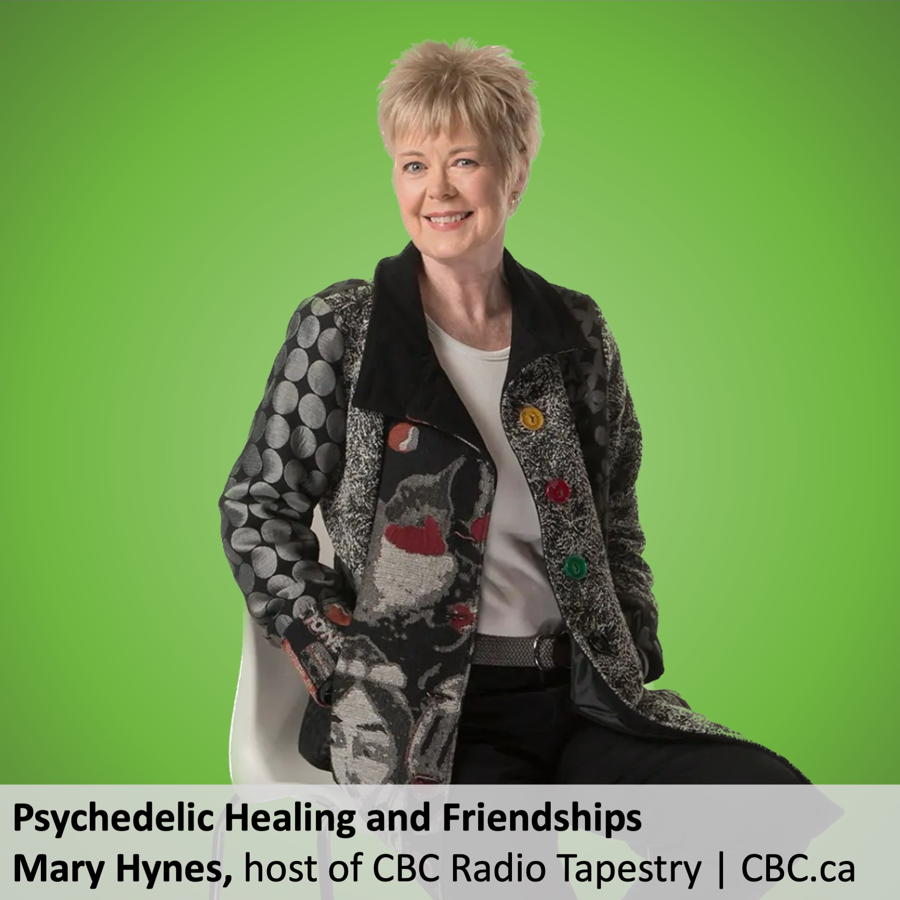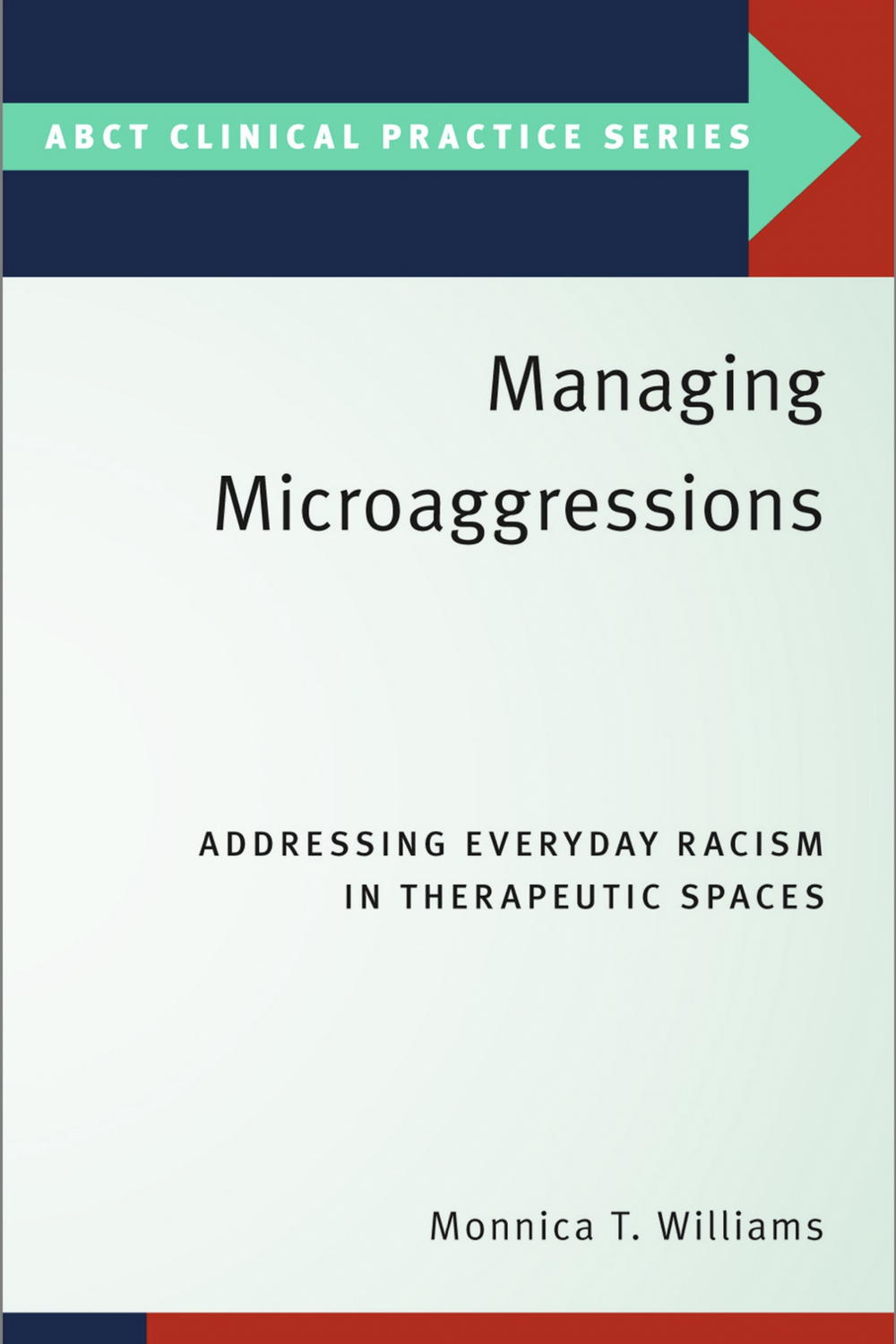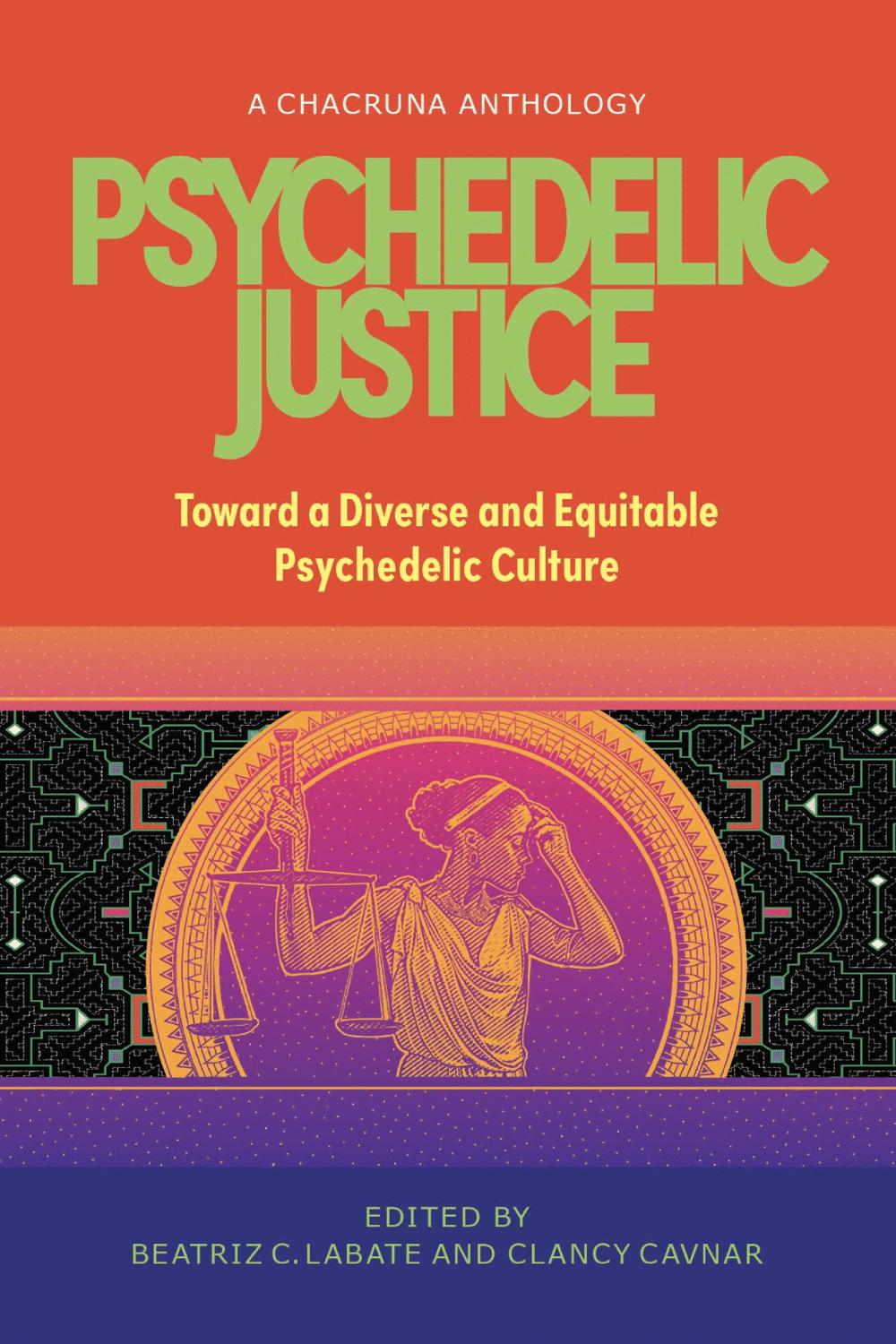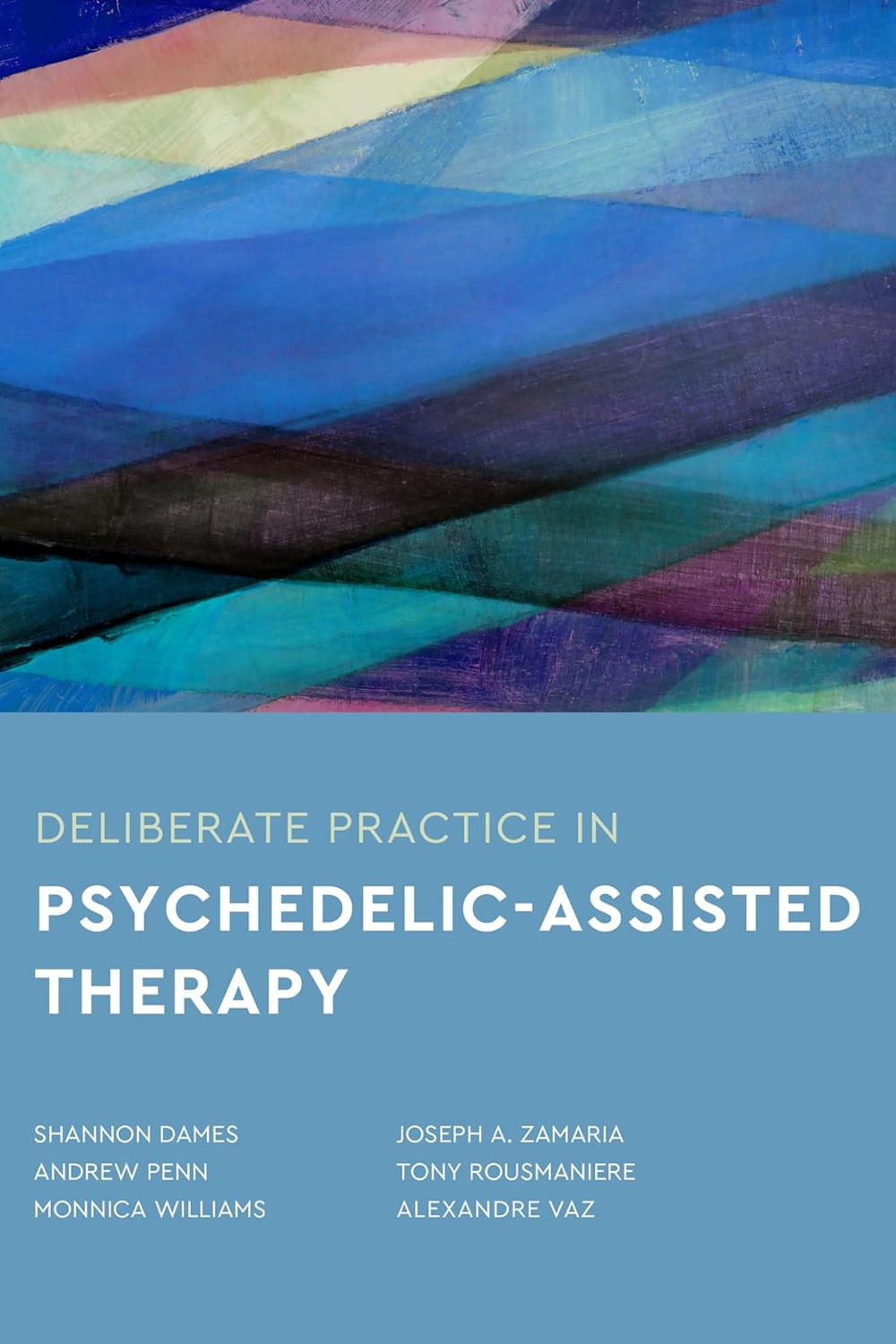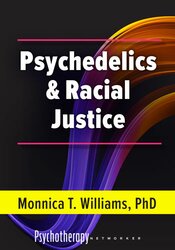Psychedelic Therapies
Dr. Monnica Williams is working to make psychedelic medicine accessible for everyone in the USA and Canada. In addition to board certification and licensure in two countries, Dr. Monnica Williams is a certified psychedelic therapist through the MAPS MDMA Training Program (part A-D). She also offers psychedelic-assisted therapy at her clinics in Connecticut and Ottawa.
Dr. Williams has used her expertise in culturally-informed clinical research to help diversify studies of MDMA and ketamine psychedelic-assisted psychotherapy.

Building A History
During the Cold War Era, incarcerated Black men were subjected to horrific experiments at the Addictions Research Center (ARC) in Lexington, Kentucky, all under the CIA's MK Ultra project. Join us in our commitment to healing through community-based participatory research.
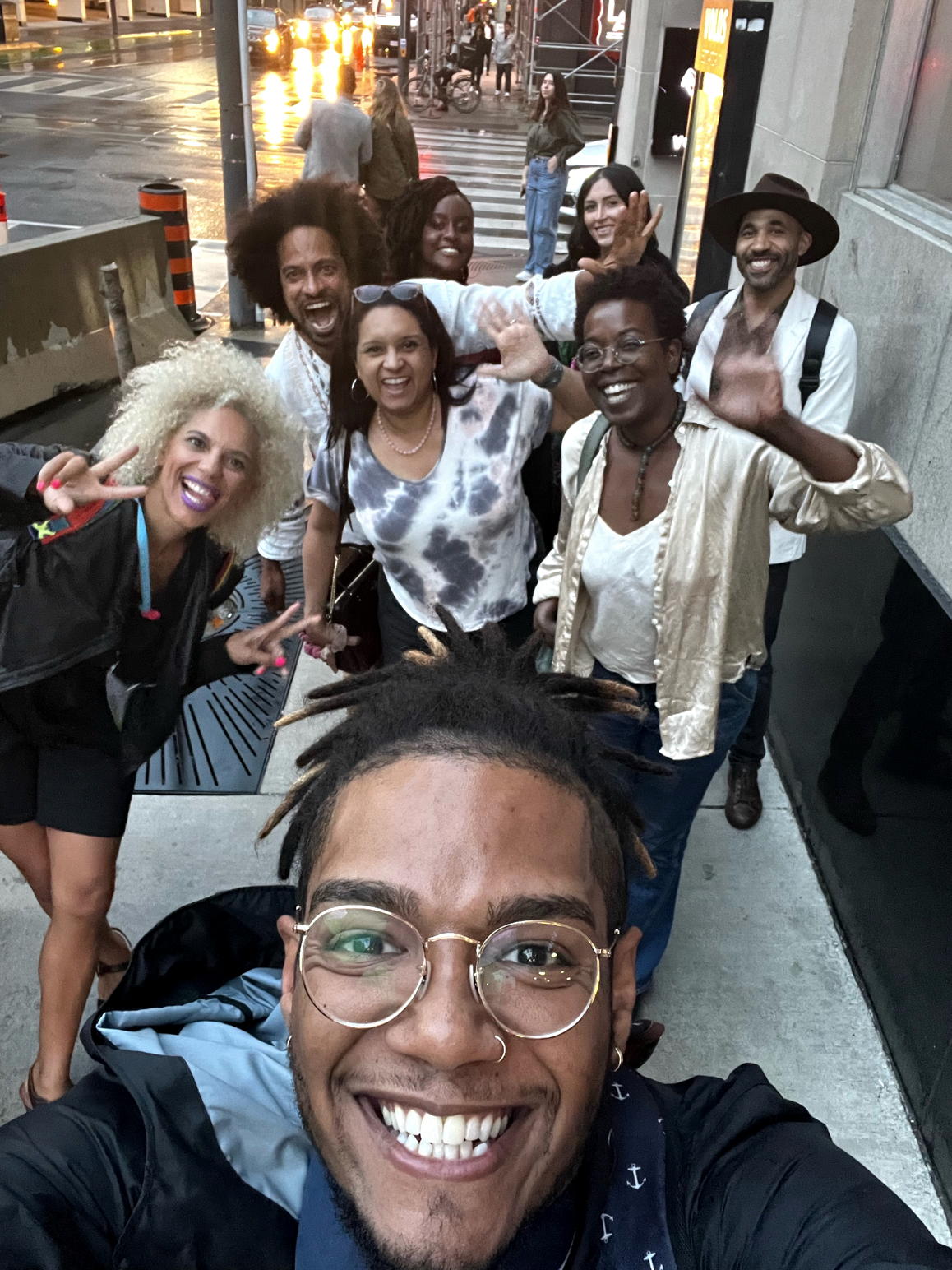
People of Color & Psychedelics
Igniting an International Conversation
Recently, there has been much excitement about the potential of psychedelic-assisted psychotherapy to address a multitude of mental health conditions, including depression, post-traumatic stress disorder, addiction, end-of-life anxiety, and other conditions. However, people of color have not been meaningfully included as research participants or researchers. With studies underway across the globe and expanding access to the benefits of these substances, space must be made for diverse voices and communities of color.
Oppression, poverty, and discrimination can all contribute to traumatic experiences at both individual and collective levels. These ongoing traumatic experiences — enhanced and compounded for people who exist at the intersection of multiple marginalized identities — are often under-recognized and thus under-treated. There is a vast potential for psychedelics to help heal trauma and move people toward wholeness.
Psychedelic Education
MA Degree in Psychedelics & Consciousness Studies
Dr. Williams is thrilled to announce the launch of an innovative Master's program in Psychedelics & Consciousness Studies, a first-of-its-kind academic initiative designed to explore the profound potentials of psychedelic substances in mental health and spirituality. This groundbreaking program equips students with the knowledge, skills, and ethical frameworks necessary to advance the burgeoning field of psychedelic studies and therapies.

How do you talk to your kids about psychedelics?
Parents are often in the best place to teach their children about psychedelics in a safe way. Watch this special segment on families and psychedelics by Plant Parenthood, featuring Dr. Monnica Williams in Tripping Together: Boundaries and Bonds in Family Psychedelic Experiences.
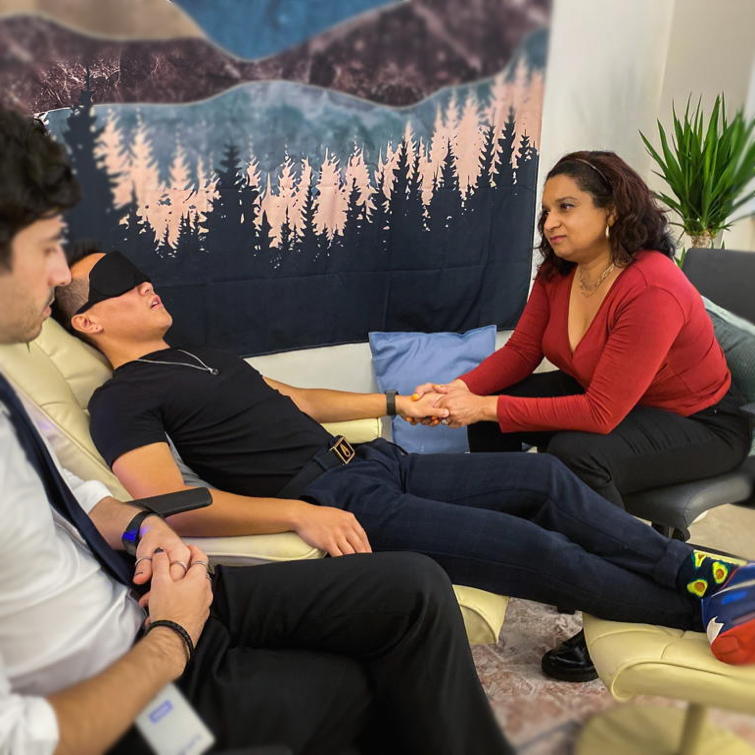
Psychedelics & Racial Justice
Online Learning from Dr. Monnica Williams
Psychedelics have been studied for the treatment of PTSD, depression, end-of-life anxiety, OCD, addictions, and a number of other mental health conditions. However, research studies of psychedelic psychotherapies have largely excluded people of color, leaving important questions unaddressed for these populations. In this video, Dr. Williams reviews relevant research, documenting exclusion based on the international literature. Save 29% through this affiliate link (1 CE).
Media Spotlight
Bailey, G. (2025, September 23). Are psychedelics a potential tool for improving mental health? Happy Enough Podcast. Globe and Mail.
Jaffer, A. (2025, July 7). Why Some Parents Are Microdosing. Today's Parent.
Dayal, O. (2025, July 4). Healing Racial Trauma with Psychedelics | Dr. Monnica Williams (Part 1). The MAPS Canada Podcast. YouTube. MAPS Canada.
Published Psychedelics Papers
MDMA and PTSD
Ching, T., Williams, M., Reed, S., Kisicki, M., Wang, J., Yazar-Klosinski, B., Emerson, A., & Doblin, R. (2024). MDMA-assisted therapy for posttraumatic stress disorder: A mixed-methods case study of a participant of color from an open-label trial. Journal of Humanistic Psychology, 64(4), 692-722. https://doi.org/10.1177/00221678221076993
Ching, T., Williams, M., Wang, J., Jerome, L., Yazar-Klosinski, B., Emerson, A., & Doblin, R. (2022). MDMA-assisted therapy for posttraumatic stress disorder: A pooled analysis of ethnoracial differences in efficacy and safety from a phase 2 open-label lead-in trial and phase 3 randomized, blinded placebo-controlled trial. Journal of Psychopharmacology, 36(8), 974-986. https://doi.org/10.1177/02698811221104052
Williams, M. T., Reed, S., & George, J. (2020). Culture and psychedelic psychotherapy: Ethnic and racial themes from three Black women therapists. Journal of Psychedelic Studies, 4(3), 125-138. https://doi.org/10.1556/2054.2020.00137
Williams, M. T., Reed, S., & Aggarwal, R. (2020). Culturally-informed research design issues in a study for MDMA-assisted psychotherapy for posttraumatic stress disorder. Journal of Psychedelic Studies, 4(1), 40–50. https://doi.org/10.1556/2054.2019.016
Williams, M. T., & Leins, C. (2016). Race-based trauma: The challenge and promise of MDMA-assisted psychotherapy. Multidisciplinary Association for Psychedelic Studies (MAPS) Bulletin, 26(1), 32-37.
Abuse, Exploitation & Ethics
Harrison, T., Faber, S., Zare, M., Fontaine, M., & Williams, M. T. (2025). Wolves among sheep: Sexual violations in psychedelic-assisted therapy. American Journal of Bioethics, 25(1), 40-55. https://doi.org/10.1080/15265161.2024.2433423
McGuire, A., Cohen, I. G., Sisti, D., Baggott, M., Celidwen, Y., Devenot, N., Gracias, S., Grob, C., Harvey, I., Kious, B., Marks, M., Mithoefer, M., Nielson, E., Öngür, D., Pallas, A., Peterson, A., Schenberg, E. E., Summergrad, P., Waters, B., Williams, M. T., & Yaden, D. B. (2024). Developing an ethics and policy framework for psychedelic clinical care. JAMA Network Open, 7(6), e2414650. https://doi.org/10.1001/jamanetworkopen.2024.14650
Strauss, D., de la Salle, S., Sloshower, J., & Williams, M. T. (2022). Research abuses against people of colour and other vulnerable groups in early psychedelic research. Journal of Medical Ethics, 48(10), 728-737. http://dx.doi.org/10.1136/medethics-2021-107262
Strauss, D., Williams, M. T., Osman, M., & Gallo, J. (2022). Myths about race and racism on university campuses. In J. Faintuch & S. Faintuch (Eds.), Integrity of Scientific Research: Fraud, Misconduct and Fake News in the Academic, Medical and Social Environment (pp. 151–161). Springer. https://doi.org/10.1007/978-3-030-99680-2_16
Therapeutic Approach
Williams, M. T. & Harrison, T. (2025). When clients say they have tried psychedelics: What mental health care providers need to know. The Behavior Therapist, 48(4), 567-577.
Williams, M. T & Jahn, Z. W. (2024). The cultural importance of setting in psychedelic therapy. MAPS Bulletin, 34(1).
La Torre, J. T., Mahammadli, M., Faber, S., Greenway, K., & Williams, M. T. (2024). Expert opinion on psychedelic-assisted psychotherapy for people with psychopathological psychotic experiences and psychotic disorders. International Journal of Mental Health and Addiction, 22, 913–937. https://doi.org/10.1007/s11469-023-01149-0
Halstead, M., Reed, S., Krause, R., & Williams, M. T. (2021). Ketamine-assisted psychotherapy for PTSD related to experiences of racial discrimination. Clinical Case Studies, 20(4), 310-330. https://doi.org/10.1177/1534650121990894
Sloshower, J., Guss, J., Krause, R., Wallace, R., Williams, M., Reed, S., & Skinta, M. (2020). Psilocybin-assisted therapy of major depressive disorder using Acceptance and Commitment Therapy as a therapeutic frame. Journal of Contextual Behavioral Science, 15, 12-19.
Infrastructure & Training
Perez Rosal, S., La Torre, J., Birnkammer, S., Chernoloz, O., Williams, M. T., & Faber, S. C. (2024). Expert recommendations for Germany’s integration of psychedelic-assisted therapy. BMC Medical Education, 24 (1202), 1-20. https://doi.org/10.1186/s12909-024-06141-3
Bartlett, A., Vallely, A., Williams, M. T., Nepton, A., & Feng, R. (2023). Building psychedelic studies as an interdisciplinary academic field: Its urgency and its challenges. International Journal for the Psychology of Religion (IJPR), 33 (4), 415-424. https://doi.org/10.1080/10508619.2023.2216628
Rochester, J., Vallely, A., Grof, P., Williams, M., Chang, H., & Caldwell, K. (2022). Entheogens and psychedelics in Canada: Proposal for a new paradigm. Canadian Psychology, 63(3), 413–430. https://doi.org/10.1037/cap0000285
Equity & Inclusion
Williams, M. T., Cabral, V., & Faber, S. C. (2024). Psychedelics and racial justice. International Journal of Mental Health and Addiction, 22, 880–896. https://doi.org/10.1007/s11469-023-01160-5
Zare, M. & Williams, M. T. (2024). Muslim women and psychedelics: A look at the past, present, and future. International Journal of Mental Health and Addiction, 22 897–912. https://doi.org/10.1007/s11469-023-01108-9
Michaels, T. I., Lester, L., de la Salle, S., & Williams, M. T. (2022). Ethnoracial inclusion in randomized, double-blind, placebo-controlled clinical trials of ketamine in the treatment of mood disorders. Journal of Studies on Alcohol and Drugs, 83(4), 596–607. https://doi.org/10.15288/jsad.2022.83.596.
Bartlett, A. & Williams, M. (2022). Valentina Pavlovna. El costo de la omisión y la importancia de corregir la historia. In E. Dyck, P. Farrell, B. C. Labate, C. Cavnar, I. Gabriell & G. L. De Assis (Eds.), Mujeres y psicodélicos: Descubriendo las voces invisibles (pp. 119-123). Lunaria Ediciones.
Fogg, C., Michaels, T. I., de la Salle, S., Jahn, Z. W., & Williams, M. T. (2021). Ethnoracial health disparities and the ethnopsychopharmacology of psychedelic medicine. Experimental and Clinical Psychopharmacology, 29(5), 539–554. https://doi.org/10.1037/pha0000490
Williams, M. T. (2021). Why Black people should embrace psychedelic healing. In B. Labate & C. Cavnar (Eds.), Psychedelic Justice: Toward a Diverse and Equitable Psychedelic Culture (pp. 3-7). Synergetic Press. ISBN: 978-0907791-85-0.
Williams, M. T. (2021). When feminism functions as White supremacy: How White feminists oppress Black women. In B. Labate & C. Cavnar (Eds.), Psychedelic Justice: Toward a Diverse and Equitable Psychedelic Culture (pp. 21-27). Synergetic Press. ISBN: 978-0907791-85-0.
Campbell, M. & Williams, M. T. (2021). The ethic of access: An AIDS activist won public access to experimental therapies, and this must now extend to psychedelics for mental illness. Frontiers in Psychiatry, 12(680626), 1-5. https://doi.org/10.3389/fpsyt.2021.680626
Williams, M. T., Bartlett, A., Michaels, T. I., Sevelius, J., & George, J. R. (2020). Dr. Valentina Wasson: Questioning what we think we know about the foundations of psychedelic science. Journal of Psychedelic Studies, 4(3), 146-148. https://doi.org/10.1556/2054.2020.00140
George, J. R., Michaels, T. I., Sevelius, J., & Williams, M. T. (2020). The psychedelic renaissance and the limitations of a White-dominant medical framework: A call for indigenous and ethnic minority inclusion. Journal of Psychedelic Studies, 4(1), 4-15. doi: 10.1556/2054.2019.015
Williams, M. T. & Labate, B. (2020). Introduction to Special Issue: Diversity, equity, and access in psychedelic medicine. Journal of Psychedelic Studies, 4(1), 1-3. https://doi.org/10.1556/2054.2019.032
Michaels, T. I., Purdon, J., Collins, A. & Williams, M. T. (2018). Inclusion of people of color in psychedelic-assisted psychotherapy: A review of the literature. BMC Psychiatry, 18(245), 1-9. doi: 10.1186/s12888-018-1824-6.
Prevalence
Davis, A. K., Arterberry, B. J., Xina, Y., Agin-Liebese, G., Schwarting, C., & Williams, M. T. (2022). Race, ethnic, and sex differences in prevalence of and trends in hallucinogen consumption among lifetime users in the United States between 2015-2019. Frontiers in Epidemiology, 2, 876706. https://doi.org/10.3389/fepid.2022.876706
Jahn, Z. W., Lopez, J., de la Salle, S., Faber, S., & Williams, M. T. (2021). Racial/Ethnic differences in prevalence for hallucinogen use by age cohort: Findings from the 2018 National Survey on Drug Use and Health. Journal of Psychedelic Studies, 5(2), 69-82. https://doi.org/10.1556/2054.2021.00166
Phenomenology
La Torre, J., Gallo, J., Mahammadli, M., Zalewa, D., & Williams, M. (2024). Experiences of psychedelic drug use among people with psychotic symptoms and disorders: Personal growth and mystical experiences. Journal of Psychedelic Studies, 8(3), 357–367. https://doi.org/10.1556/2054.2024.00348
Kryskow, P., Stamets, P., La Torre, J., Sattler, K., Tsang, V. W. L. & Williams, M. (2024). "The mushroom was more alive and vibrant": Patient reports of synthetic versus organic forms of psilocybin. Journal of Psychedelic Studies, 8(3), 303–312. https://doi.org/10.1556/2054.2024.00379
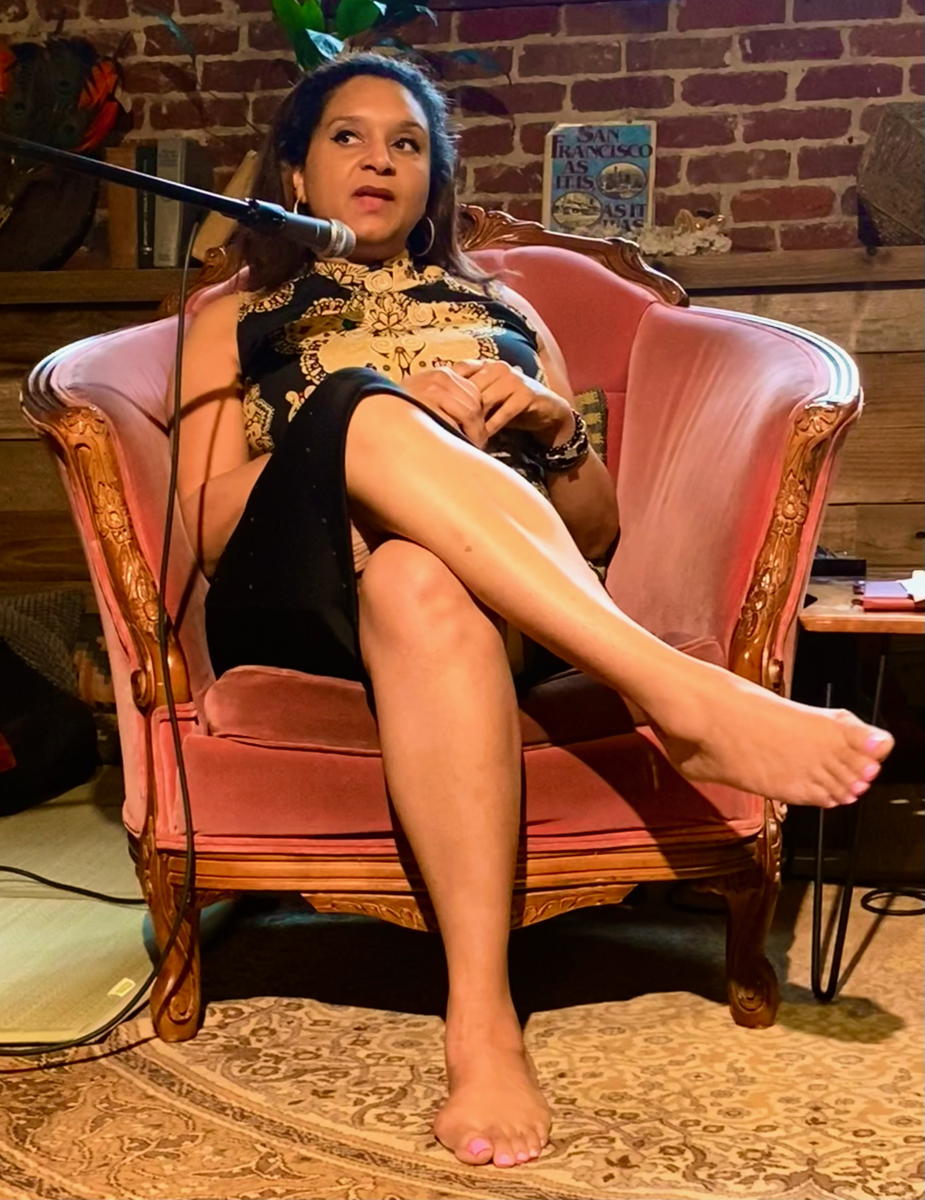
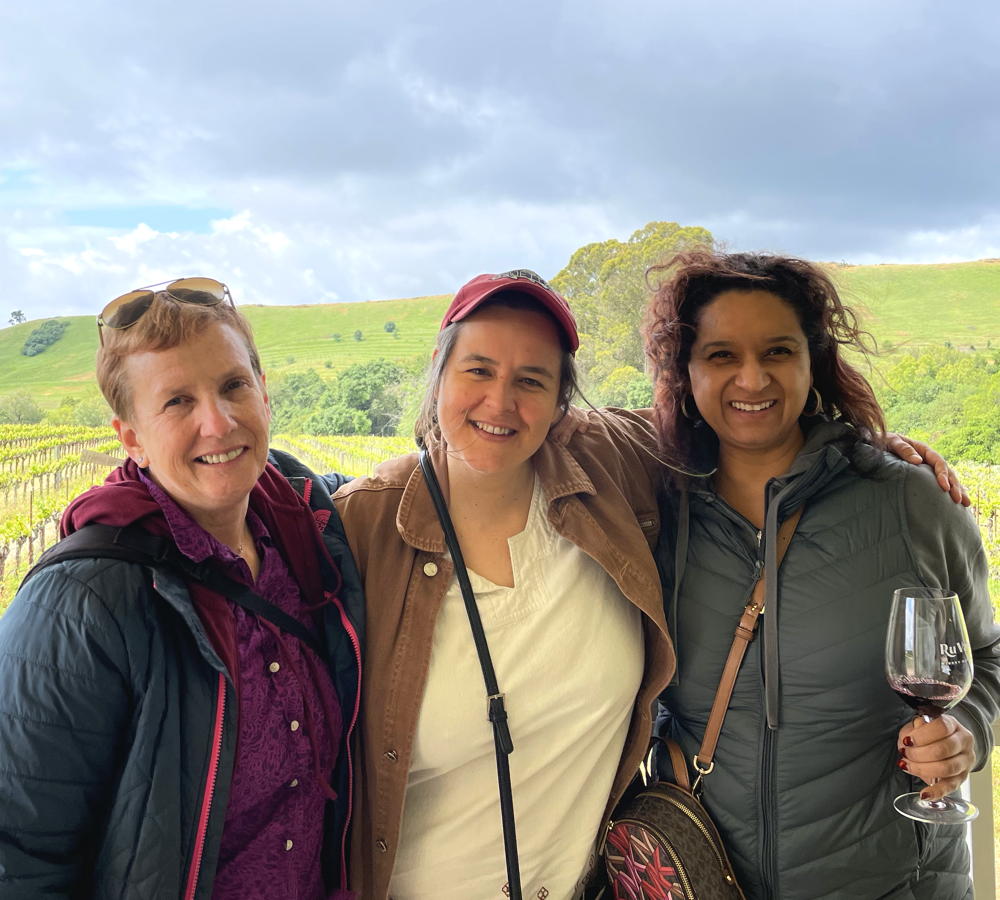
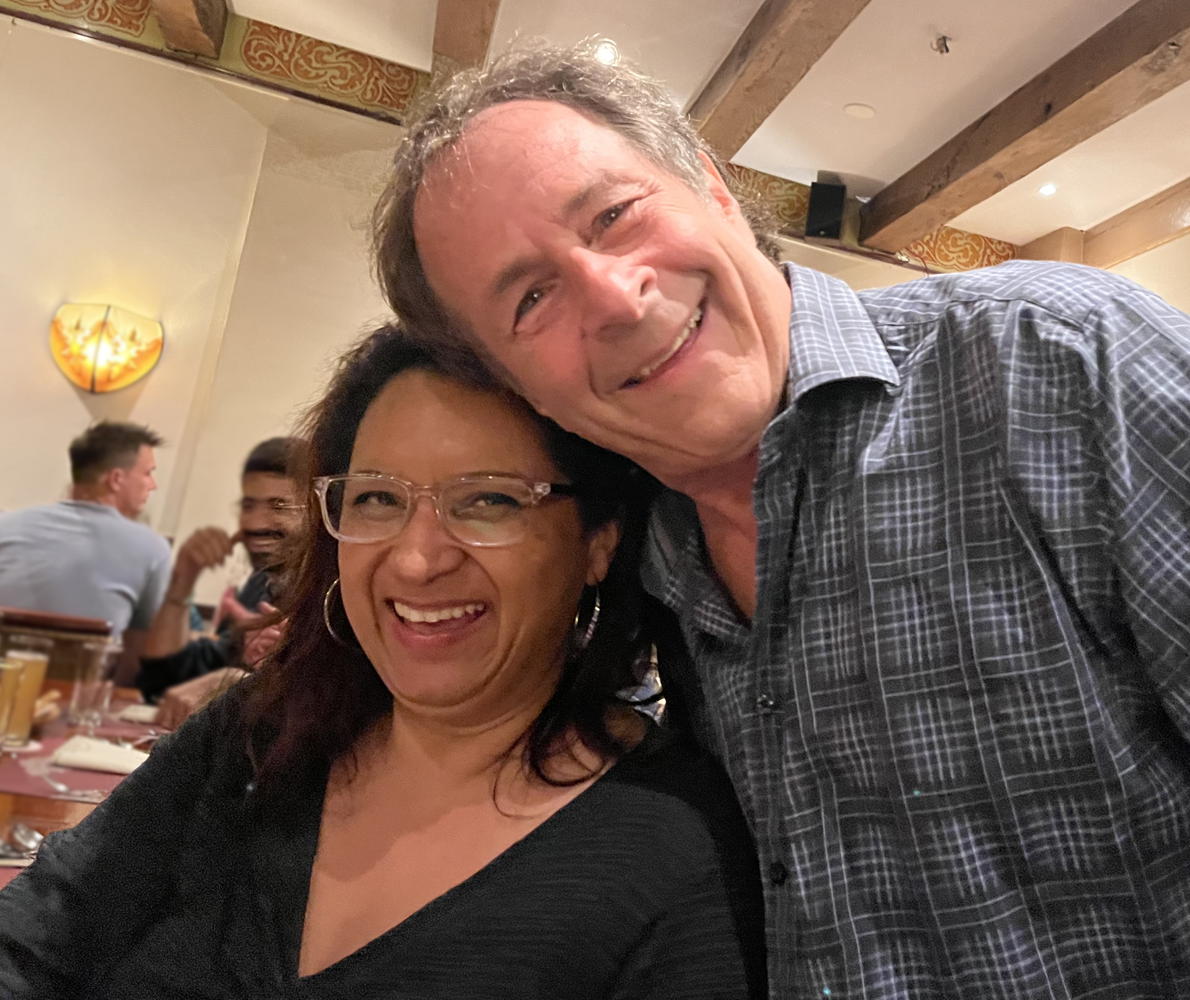
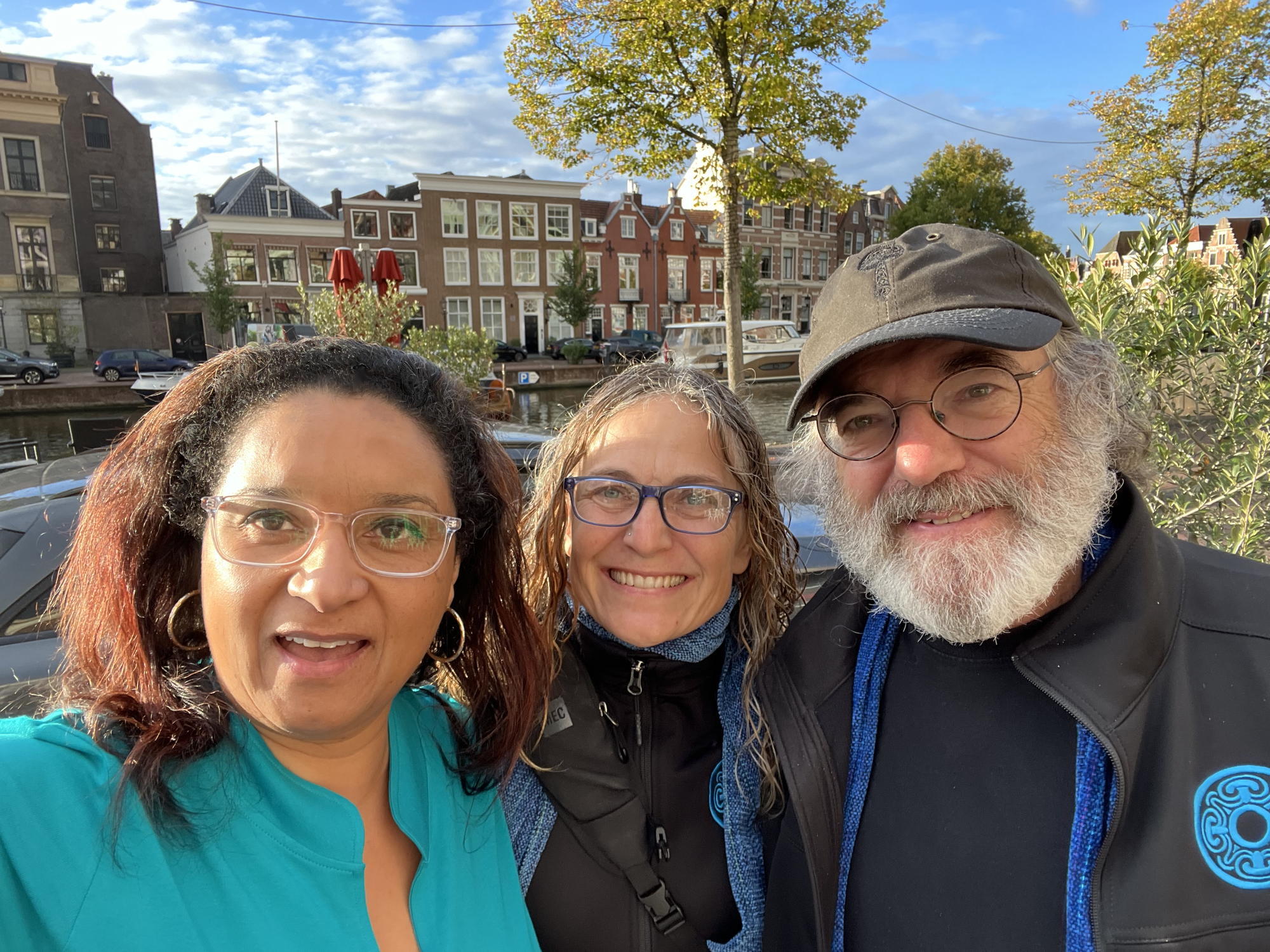
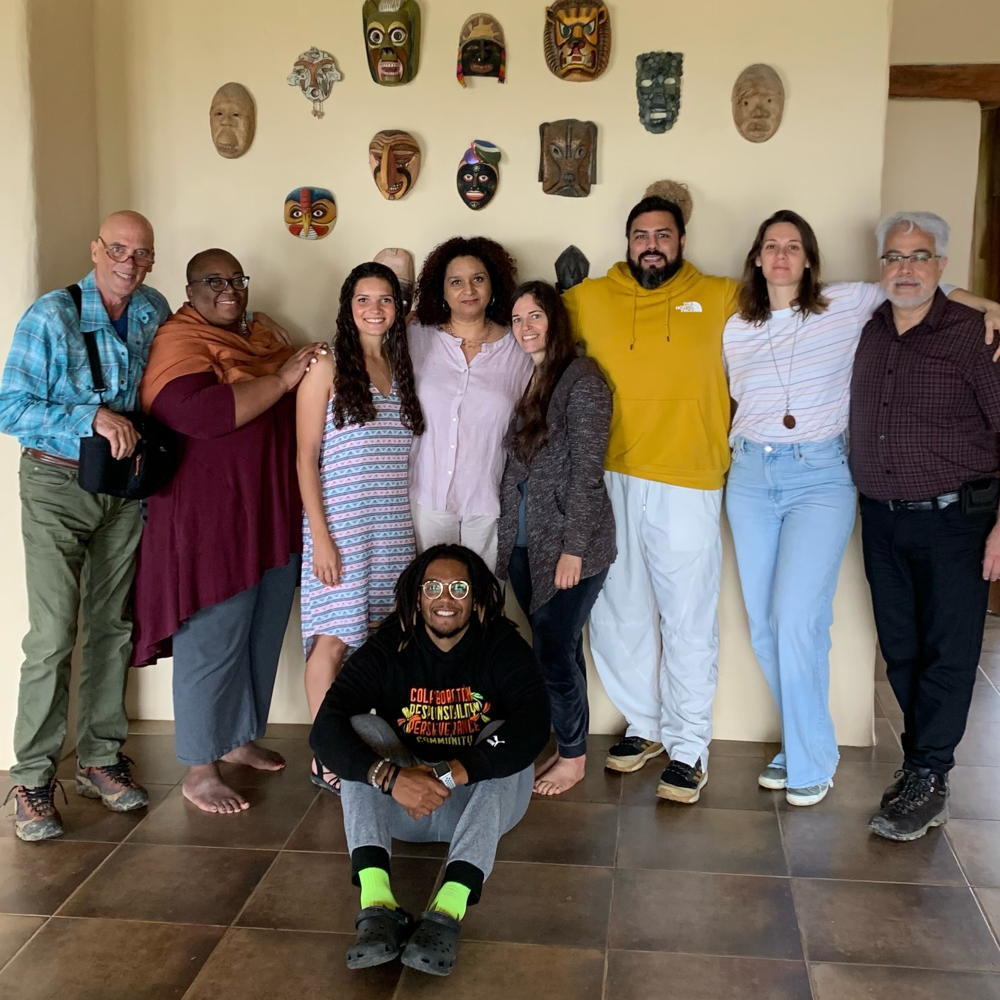
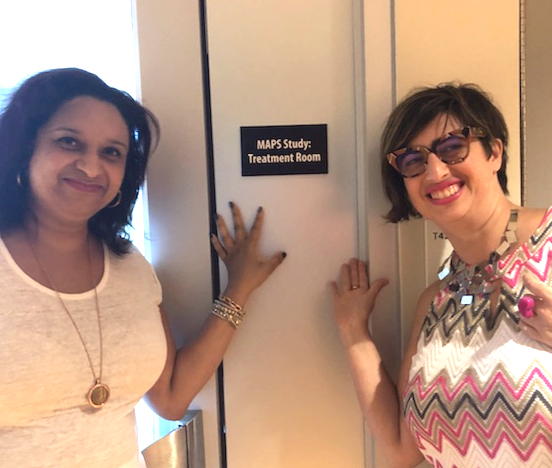
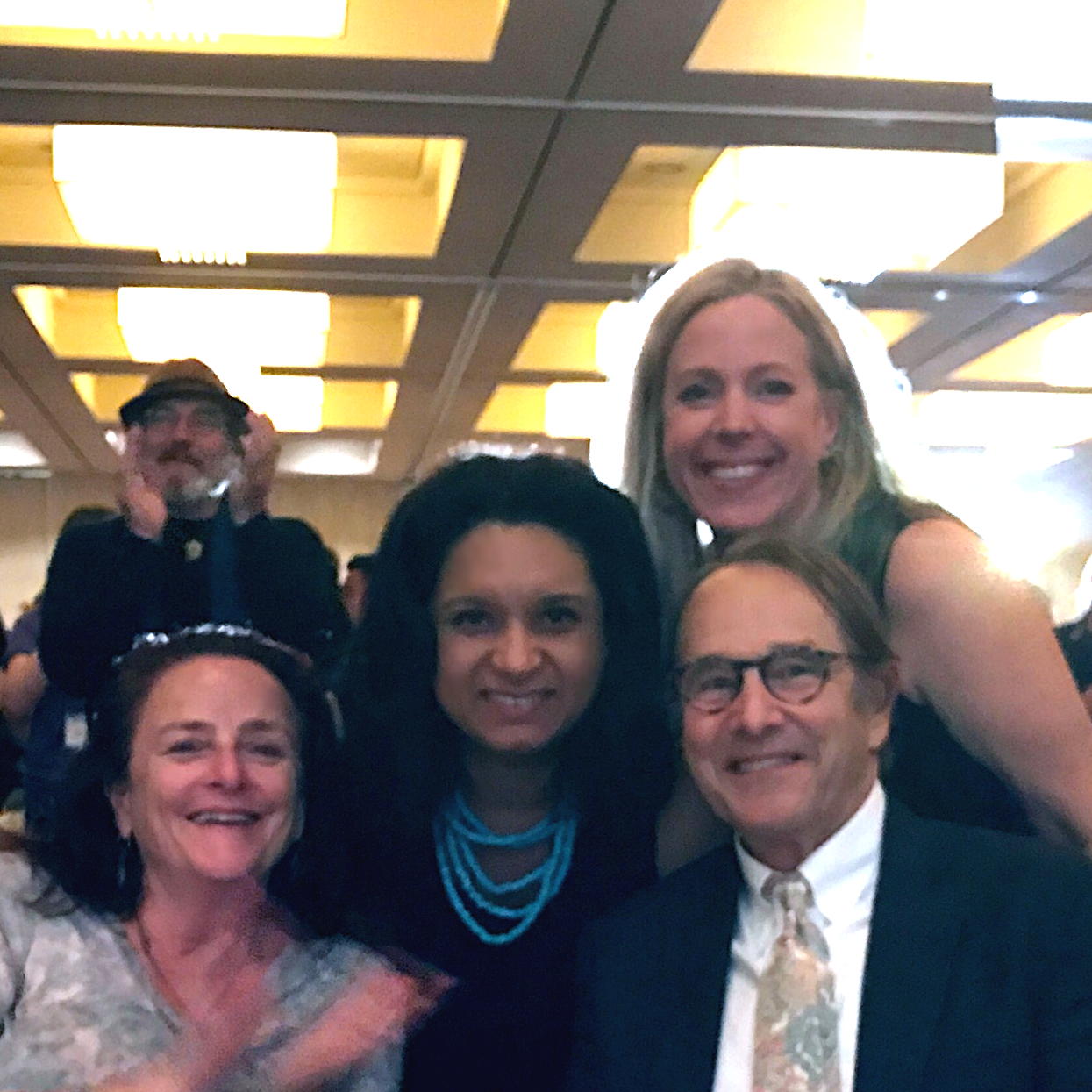
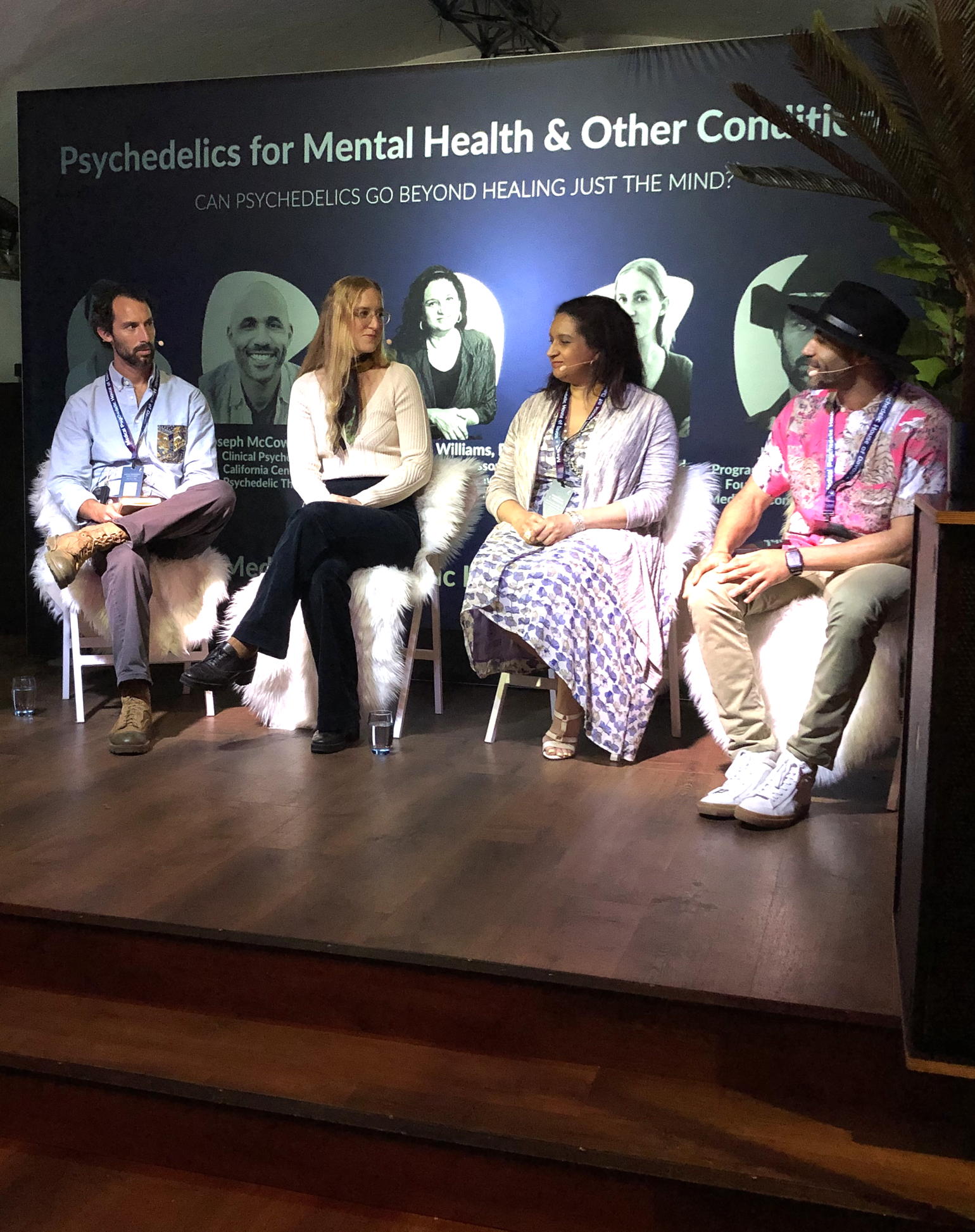

Racial Trauma
Haeny, A. H., Lopez, J., Grigas, P. C., Crouch, M., Davis, A. K., & Williams, M. (2023). Investigating the associations of acute psychedelic experiences and changes in racial trauma symptoms, psychological flexibility, and substance use among People with Racial and Ethnic Minoritized Identities in the United States and Canada. Journal of Substance Use and Addiction Treatment, 149, 209035. https://doi.org/10.1016/j.josat.2023.209035
Ching, T., Davis, A. K., Xin, Y., & Williams, M. T. (2023). Effects of psychedelic use on racial trauma symptoms and ethnic identity among Asians in North America. Journal of Psychoactive Drugs, 55(1), 19-29. https://doi.org/10.1080/02791072.2022.2025960
De la Salle, S., Davis, D. D., Gran-Ruaz, S., Davis, A. K., & Williams, M. T. (2022). Acute and enduring effects of psychedelic use among Indigenous peoples in Canada and the United States. Canadian Psychology, 63(4), 589–607. https://doi.org/10.1037/cap0000338
Davis, A. K., Xin, Y., Sepeda, N. D., Garcia-Romeu, A., & Williams, M. T. (2021). Increases in psychological flexibility mediate the relationship between acute psychedelic effects and decreases in racial trauma symptoms among people of color. Chronic Stress, 5, 1-10. https://doi.org/10.1177/24705470211035607
Williams, M., Davis, A., Xin, Y., Sepeda, N., Colon-Grigas, P., Sinnott, S., & Haeny, A. (2021). People of color in North America report improvements in racial trauma and mental health symptoms following psychedelic experiences. Drugs: Education, Prevention & Policy, 28(3), 215-226. https://doi.org/10.1080/09687637.2020.1854688
End of Life
Beaussant, Y., Tulsky, J., Guérin, B., Schwarz-Plaschg, C., Sanders, J., & the Radcliffe Institute for Advanced Studies Working Group on Psychedelic Research in Serious Illness. (2021). Mapping an agenda for psychedelic-assisted therapy research in patients with serious illness. Journal of Palliative Medicine, 24 (11), 1657-1666. https://doi.org/10.1089/jpm.2020.0764
Rosa, W. E., Sager, Z., Miller, M., Bernstein, I., Rinaldi, A. D., Addicott, K., Ljuslin, M., Adrian, C., Back, A. L., Beachy, J., Bossis, A. P., Breitbart, W. S., Cosimano, M. P., Fischer, S. M., Guss, J., Knighton, E., Phelps, J., Richards, B. D., Richards, W. A., Tulsky, J. A., Williams, M. T., & Beaussant, Y. (2022). Top ten tips palliative care clinicians should know about psychedelic-assisted therapy in the context of serious illness. Journal of Palliative Medicine, 25(8), 1273-1281. https://www.liebertpub.com/doi/10.1089/jpm.2022.0036
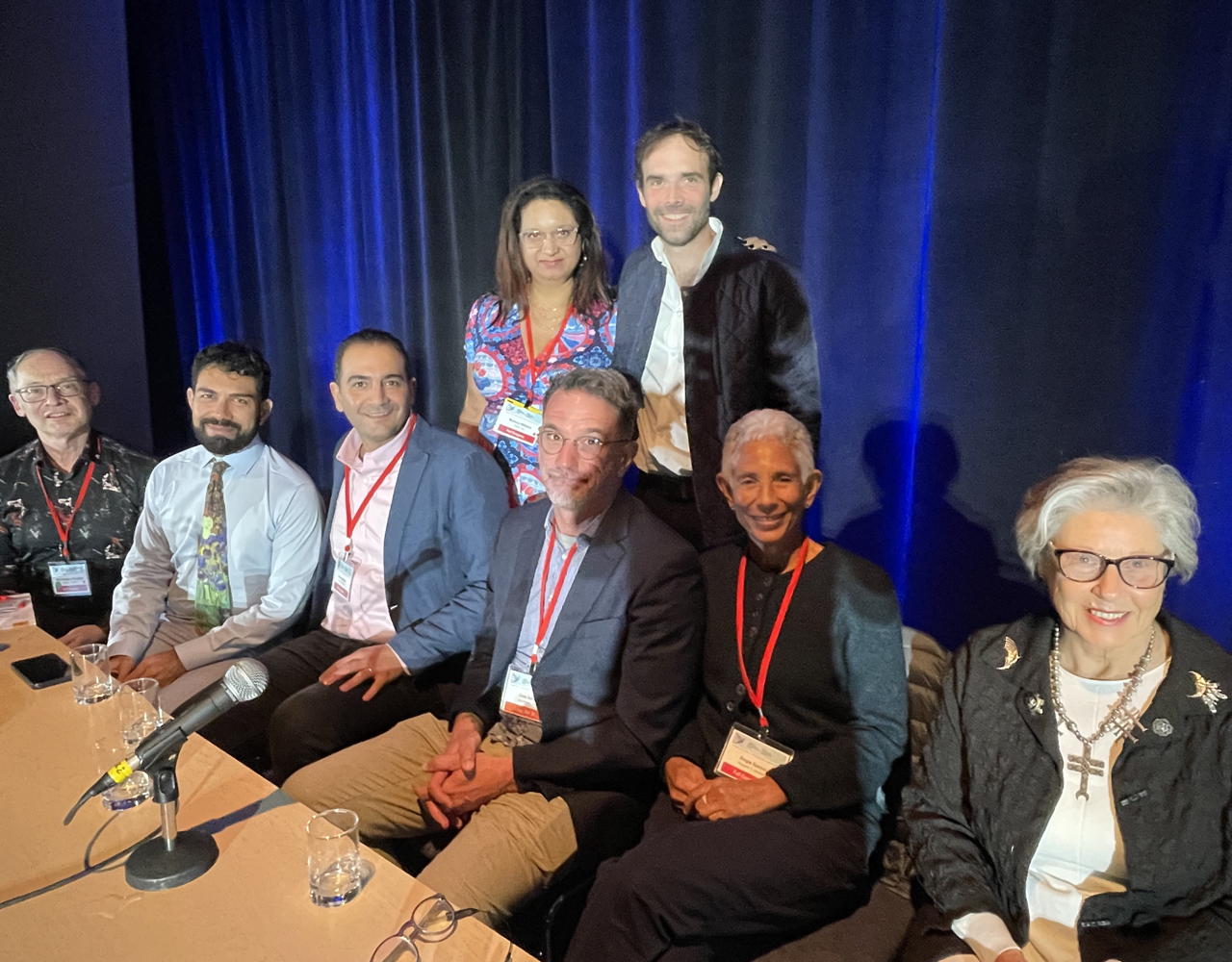

Conference Planning
- Conference Planning Committee, Psychedelic-Assisted Therapies: Complexity in Community, Harvard University, February 2025, Boston, MA
- Conference Planning Committee, Psychedelic-Assisted Therapies: Contrasting Visions, Harvard University, February 2024, Boston, MA
- Conference Planning Committee, Psychedelic-Assisted Therapies: Promise and Perils, Harvard University, February 2023, Boston, MA
- Conference Planning Leadership Team, Global Summit on Psychedelic-Assisted Therapies and Medicines: From Research to Reality, May 2022, Toronto, ON
Also See
Payer, D., Klaire, S., Morisano, D., Bartram, M., Williams, M. & Rush, B. (2024). Navigating the Psychedelic Renaissance: From research to reality. International Journal of Mental Health and Addiction, 22, 801–805. https://doi.org/10.1007/s11469-024-01288-y
